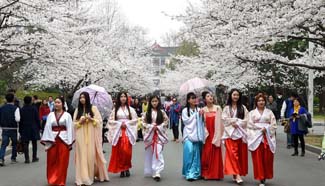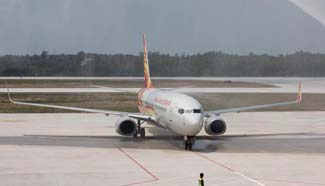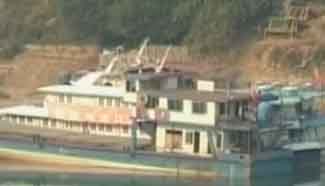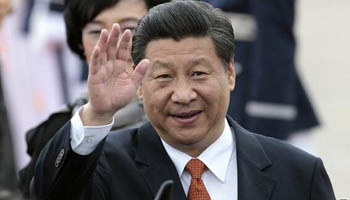Human Resources
Reform Content: “(China will) deepen the reform of military educational institutions, and perfect the triadic training system for new-type military personnel. The reforms of officer, enlisted and civilian personnel systems will be promoted; the systematic reforms on healthcare, insurance, housing, and salary and benefits will be deepened; and the system of military human resources and logistical policies will be improved.”
Background: According to China’s Military Strategy issued in May 2015, China’s forces will implement the strategic project of personnel training and perfect the system of human resources. They will deepen the reform of military educational institutions so as to pool more talented people and cultivate more personnel to meet the demands of digitalized warfare.
Comment: Zhao Xiaozhuo: How can the forces attract the talented people? How to cultivate them? What welfare can the soldiers enjoy after they retire? Addressing these concerns of all officers and soldiers, the reform makes a series of arrangements and deployments. The concept of “human resources” came from economics and military forces have replaced the original “personnel” with this new concept so as to consider people as important resources for cultivation, selection and hiring, and turn them into an actual battle force.
Civil-Military Integration
Reform Content: “(China will) strive to solve the systematic problems that constrain the development of civil military integration and form a smooth, efficient administration system with unified leadership, coordinated by the military and civil sectors; an operation system led by the state based on market demands; a complete and supportive policy system to provide efficient stimulus so as to create an all-round and multiple-field development trend for in-depth civil-military integration with high benefits.”
Background: China has been developing a defense industry for civil and military purposes since the founding of PRC, laying the foundation for the country’s industry and defense status. Since the 18th CPC National Congress, the CPC Central Committee has upgraded civil-military integration to a national strategy, and the in-depth development of the civil-military integration of the science and technology industry for national defense has entered a new stage.
Comment: Du Wenlong: The content of civil-military integration is different at different stages. From the founding of PRC to the 1980s, because of a developed national defense industry, it mainly meant diverting the talent and technologies from the military to the civil field. Since the policy of opening and reform – as the county’s science, technology and the economy have developed rapidly – civil-military integration requires forming a proper channel so that advanced technologies can be applied to the defense industry efficiently. In fact, the concept of in-depth development of civil-military integration has multiple meanings. It means not only to apply civil technologies to the military sector, but also to promote building a think tank that is co-developed by the civil and military sectors, among other aspects.
Terminating Paid Services
Reform Content: “All paid services will be terminated.”
Background: Under certain historical circumstances, Chinese forces were engaged in production and business activities to make up for the insufficient military spending since the 1980s. In 1998, the CPC Central Committee required the military forces and armed police forces to halt all business activities, only allowing some designated organizations and industries to provide paid services.
Comment: Lou Yaoliang: A soldier should fully focus on fighting. Further, business activities are unfair if the military is involved. The resolution to terminate paid service activities will help keep the substantial character of the PLA and prevent corruption.
Reforms of People’s Armed Police Force (PAPF)
Reform Content: “The structure of the PAPF and the system of command and administration will be optimized.”
Background: According to the 2006 White Paper on China’s National Defense, The PAPF has 660,000 personnel. The PAPF consists mainly of the internal security force and forces guarding particular sectors. Border security, firefighting and security forces are components of the PAPF. In peacetime, the PAPF is tasked to perform guard duties, handle emergencies, combat terrorism, and participate in and support national economic development. In wartime, it assists the PLA in defensive operations.
Comment: Yin Zhuo: Like the PLA, the PAPF also faces problems in its institutional system and structure. It has many barriers to improving fighting capacity, which also needs reforming.
Discipline Inspectors and Auditors
Reform Content: “A new discipline inspection commission will be established within the CMC, and discipline inspectors will be posted to CMC departments and battle zone commands. The CMC will have an audit office, from where auditors will be deployed, and a political and legal affairs commission. The independent and fair use of judicial power by zone-based military courts and procuratorates will be ensured through adjustments to the military judicial system.”
Background: Since the 18th CPC National Congress, the PLA has investigated and dealt with a series of major corruption cases based on the deployment of the CPC Central Committee. A series of decrees and regulations took effect, establishing a system composed of patrols, inspections, audits and judicial sectors, under which military personnel dare not, cannot and do not want to be corrupt, and use of power is regulated in the “cage” system to help build a stronger army.
Comment: Zhang Junshe: Departments that are sent from the direct leadership will help better ensure the authority of discipline inspection and auditing departments so that they can supervise independently and fairly. To establish a system of checks and supervision over the exercise of power, which is scientific in policy-making, resolute in execution and powerful in supervision, is a major focus of this reform and also an important measure to strengthen the building of a clean and honest work style of the PLA and the fight against corruption.










